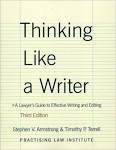Even More About Words to Use in Blogging for Business

“Having something to contribute to a conversation makes us feel good,” schoolwebmasters.com points out, advising schools on communication strategy. “Everyone likes to feel knowledgeable, included, and validated. It’s even typical in group conversations for someone to be thinking more of what they can add to the conversation than actively listening to what other people are saying”.
Rule #4 schoolwebmasters offers school personnel is this: “Keep your mission and message short and memorable. Think about what you want people to say when they start talking, and work that message into your communication strategy.” As blog content writers, we can truly appreciate this next piece of advice: “A long, complicated message isn’t going to be repeated in word-of-mouth instances….Keep things positive and simple.”
Since the words we use in business blog content are our most important power tools, how can we use words to enhance word of mouth marketing results for our business owner and professional practitioner clients?
Marketers used to focus on the 4 Ps, Kimberly Whitler writes in Forbes. Now, Whitler claims, we need to focus on the three Es: Engage, Equip, Empower. In blog marketing, I teach, one of the goals is to “put words into readers’ mouths”, equipping them to make meaningful contributions to conversations – about you and about your products and services.
Often what really makes up a consumer’s mind is a word-of-mouth recommendation from a trusted source. “As consumers overwhelmed by product choices tune out the ever-growing barrage of traditional marketing, word of mouth cuts through the noise quickly and effectively,“ observes the McKinsey Quarterly.
In blogging for business, we need to “put words into consumers’ mouths”!





Follow us online!